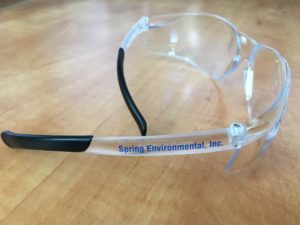Washington State Department of Labor & Industries’ (L&I) permanent rules for Worker Outdoor Heat Exposures went into effect July 17, 2023. With predicted warmer and drier seasons ahead, make sure you are protecting your employees in accordance with the standards.
The year-round standards apply when the action levels outlined in Table 1 – 52 degrees Fahrenheit for Non-Breathable clothing and 80 degrees Fahrenheit for all other clothing – are exceeded. Employers and employees should educate themselves on the triggering events and what actions must be taken to ensure worker safety. Some key aspects to consider include:
• Definitions
• Response to heat induced illnesses
• Information and Training program requirements
• Shade requirements
• Acclimatization guidelines
For more information, check out the Be Heat Smart (wa.gov) for access to the standards and resources such as posters, videos, and training materials.
* The Federal rulemaking for Heat Illness Prevention in Indoor and Outdoor work settings is currently in the Pre-rule stage of development.

